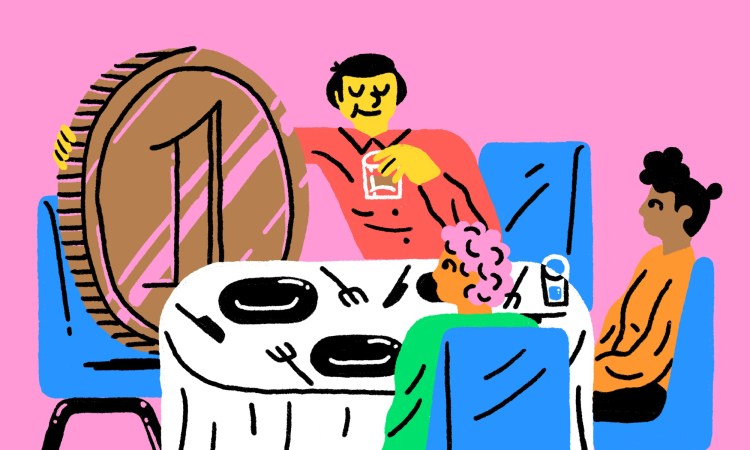
Apps like Venmo, Square Cash, Zelle and PayPal have streamlined our lives, but they could also be negatively influencing people’s attitudes towards you. Here’s how.
This post is part of TED’s “How to Be a Better Human” series, each of which contains a piece of helpful advice from someone in the TED community; browse through all the posts here.
Remember those pre-smartphone days when you’d spot a friend for a meal or a drink? They’d respond by saying, “Hey, the next time’s on me,” and you would trust/believe/hope that they’d remember (depending on the friend).
Today, payment apps like Venmo, Square Cash, Zelle and PayPal have made such casual exchanges obsolete. No longer must we rely on loose words and leaky memories; the apps let us send money to someone else on the spot. Their existence has eased our lives, transforming potentially sticky situations into simple, straightforward transactions, right?
Well, not quite — as it turns out, they could be harming your relationships.
Imagine this scenario. You’re at dinner with your friends Mae and Steven when the bill arrives; it’s $60.75. The three of you have already said you’d split it evenly. Steven puts down his credit card to cover the total — he wants the points — so you and Mae agree to each send him one-third of the total. You, wanting to be fair, give him the exact amount, $21.25, while Mae rounds down to $21. Who is Steven more likely to have negative feelings toward: You or Mae?
You.
In a paper published in the Journal of Experimental Psychology, researchers Tami Kim, Ting Zhang and Michael Norton learned that being a stickler for exact change causes people to perceive you as petty — you’re seen as being overly attentive to trivial details — and think less fondly of your relationship.
In their study, they showed participants the Venmo transaction histories for two different people. One showed the individual paying back their friends using round numbers ($10, $35, and $20); the other showed the individual paying back specific amounts ($9.99, $34.95, and $20.06). The participants were asked to pick who they’d rather be friends with, and the overwhelming majority (81 percent) chose the person who paid in round amounts rather than the exact change.
Hmmm … why would people prefer someone who underpays? “When people exchange in these behaviors, it makes the relationship feel transactional,” says Kim, assistant professor of marketing at University of Virginia’s Darden School of Business. In other words, we don’t want to feel like our friends are keeping precise track of what we owe them, and vice versa. It undermines our bond by turning a trust-based relationship (say, a friend offers you a ride home, no strings attached) into a transactional tit-for-tat relationship (where your friend expects reimbursement for gas).
“A retailer or a bank teller can say, ‘This costs $22.11,’ and we can’t just decide to give him $22. We have to pay the 11 cents,” explains Norton, professor of business administration at Harvard Business School. “When we apply that same logic to our interpersonal relationships — like our friends and family — it feels like we’re treating them like a retailer or a bank. It suggests that we see them as someone we need to settle our scores with, instead of someone close to us.”
This study isn’t just about exchanging money digitally. “There are a lot of other ways you can engage in these behaviors in the offline world,” says Kim. For instance, you call your sister to catch up. When she says she can talk for only four minutes and then tells you at the four-minute mark that her time’s up, you may be annoyed but not know why. You could be feeling like she has put a specific, impersonal limit on a personal interaction. “This concept that we’re studying is not just confined to digital trends, but it’s reflective of what’s more broad general human behavior,” adds Kim.
In fact, the researchers found that participants readily related to the study. Norton says, “We’ve asked people, ‘Do you know somebody whose like this?’ and almost everybody can immediately generate someone and they typically don’t like that person all that much.”
So, what can we learn here? “One takeaway is to try not to be that person in your group who always insists on splitting the bill precisely and counting everything — whether it’s cents or minutes or any type of currency,” says Norton. “It does have negative personal consequences.” By loosening up in your transactions with the people in your life, you’re showing that your feelings for them transcend money or time.
Watch Michael Norton’s TEDxCambridge talk on how money can buy happiness now:








